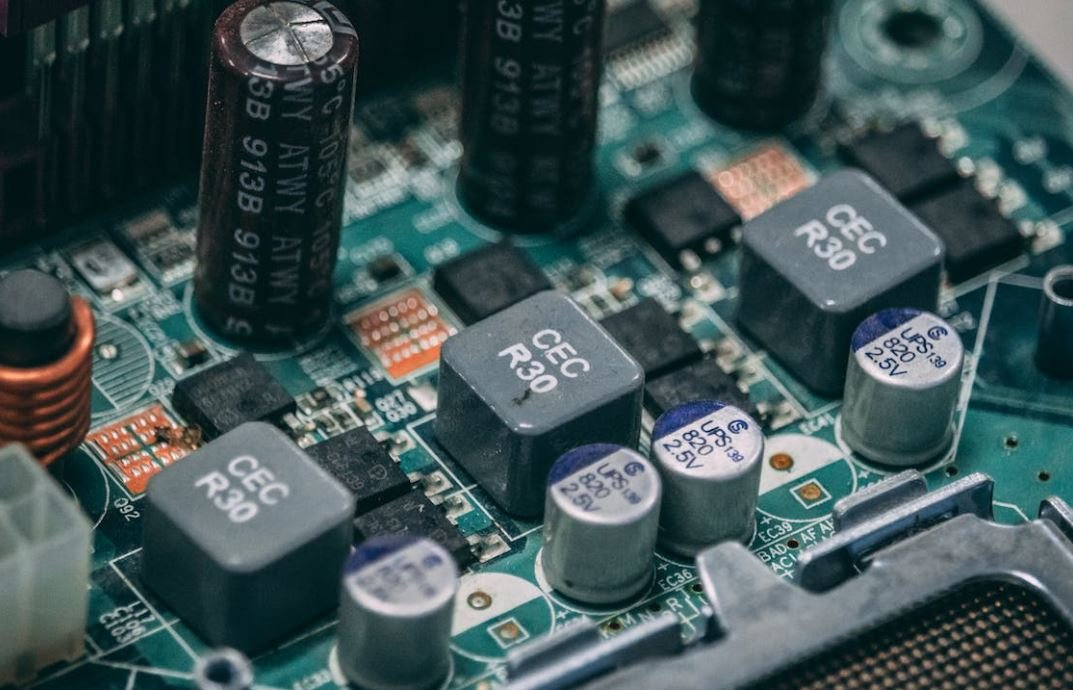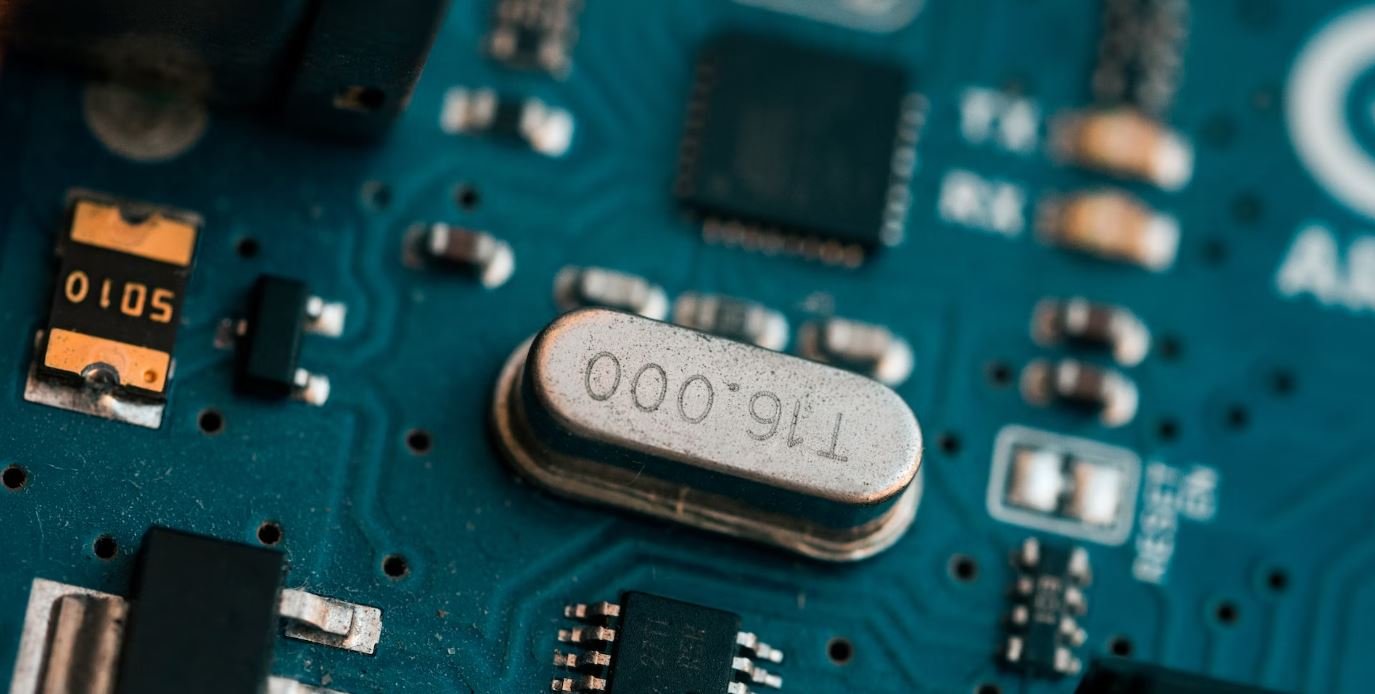How AI Voice Cloning Works
AI voice cloning is a technology that allows computers to replicate human voices with remarkable precision. By leveraging deep learning algorithms, AI models are trained on large datasets of speech recordings to create synthetic voices that imitate human speech patterns, intonations, and emotions. This groundbreaking technology has found applications in various industries such as entertainment, marketing, and customer service.
Key Takeaways:
- AI voice cloning uses deep learning algorithms to replicate human voices.
- Synthetic voices created through AI voice cloning mimic human speech patterns and emotions.
- AI voice cloning has diverse applications in industries like entertainment, marketing, and customer service.
**Voice cloning** starts with collecting a large amount of speech data from a target individual. This data includes recordings of the person speaking in various contexts, tones, and styles. The more data available, the better the AI model can learn to mimic the voice accurately.
*AI models learn to replicate human voices by analyzing an extensive dataset of speech recordings.*
Once the data is gathered, it goes through a preprocessing step that involves removing noise, normalizing audio levels, and segmenting the recordings into smaller units such as sentences or phrases. This preprocessing step ensures that the data is clean and ready for training the AI model.
A key component of AI voice cloning is **deep learning**. Deep learning models, such as recurrent neural networks (RNNs) or convolutional neural networks (CNNs), are trained on the preprocessed voice data. These models learn the statistical patterns in the data and are able to generate high-quality synthetic voices that sound like the target person.
*Deep learning models analyze the voice data to generate synthetic voices that closely resemble the target individual’s voice.*
Training an AI voice cloning model involves the following steps:
- **Data collection**: Gathering a large dataset of speech recordings from the target individual.
- **Preprocessing**: Cleaning and segmenting the audio data for training.
- **Model training**: Utilizing deep learning algorithms to train the AI model on the voice data.
- **Voice synthesis**: Generating synthetic voices using the trained model.
To ensure a high-quality voice clone, the training process may require thousands of hours of audio data and significant computational resources. It also involves fine-tuning the model to capture subtle nuances and inflections that make each individual’s voice unique.
*Training an AI voice cloning model may involve thousands of hours of audio data and requires adequate computational resources.*
| Industry | Application |
|---|---|
| Entertainment | – Voice replication for movies, TV shows, and video games. |
| Marketing | – Creating personalized voice advertising campaigns. |
| Customer Service | – Developing virtual assistants with human-like voices. |
Apart from the ethical implications surrounding anonymity, privacy, and potential misuse of AI voice cloning technology, it has remarkable benefits in improving accessibility for individuals with speech disabilities and preserving the voices of those who are at risk of losing them due to medical conditions.
*AI voice cloning technology offers accessibility benefits for speech-disabled individuals and voice preservation for those at risk of losing their voice.*
| Pros | Cons |
|---|---|
|
|
In conclusion, the advancement in AI voice cloning technology has opened new possibilities in entertainment, marketing, and customer service industries. While it brings benefits like enhanced accessibility and voice preservation, ethical considerations and potential misuse underline the need for responsible usage and regulation in the field.

Common Misconceptions
1. AI Voice Cloning Requires Extensive Voice Data
One of the common misconceptions about AI voice cloning is that it requires a significant amount of voice data to create a clone. However, this is not entirely true. While having more voice samples can improve the accuracy and quality of the clone, recent advancements in AI technology have made it possible to create relatively accurate voice clones with a limited amount of voice data.
- Adequate voice data is crucial but not the sole determining factor for AI voice cloning.
- Data augmentation techniques can be used to enhance the quality of voice clones with a limited dataset.
- A combination of machine learning algorithms and synthetic voice generation can compensate for the lack of extensive voice data.
2. AI Voice Clones Are Indistinguishable from Real Voices
Another misconception is that AI voice clones are flawless and indistinguishable from real voices. While AI has made great strides in voice cloning, it is not yet perfect. In some cases, subtle differences in pronunciation or tone can give away that a voice is artificially generated. However, as the technology continues to improve, the ability to create highly convincing and believable voice clones is becoming more feasible.
- Small imperfections in voice clones may still exist, giving away their artificial nature.
- The success of voice cloning depends on the complexity of the voice and the available training data.
- Post-processing techniques can be employed to further enhance the naturalness of the cloned voice.
3. AI Voice Cloning can be Used to Deceive People
There is a misconception that AI voice cloning is solely used for deceptive purposes, such as creating fraudulent phone calls or impersonating individuals. While this is one possible application, it is important to recognize that AI voice cloning has various legitimate and beneficial uses as well. For instance, it can be employed in voice-over services, virtual assistants, and accessibility technologies.
- AI voice cloning can contribute to the creation of inclusive and personalized experiences for individuals with speech impairments.
- It can enhance the performance of virtual assistants by providing more natural and human-like interaction.
- In entertainment industry, AI voice cloning can be used to bring historical figures or fictional characters to life.
4. AI Voice Cloning is Easy and Accessible to Everyone
Contrary to popular belief, AI voice cloning is not a simple and easily accessible technology for everyone. While there are some user-friendly tools available, creating high-quality voice clones often requires a deep understanding of machine learning algorithms, natural language processing, and extensive computing resources. It involves specialized expertise and technical knowledge that only a handful of professionals currently possess.
- Developing robust AI voice cloning models requires expertise in machine learning and audio signal processing.
- Training and fine-tuning the models demand significant computational resources and time.
- User-friendly tools exist but may not offer the same level of customization and accuracy as advanced AI frameworks.
5. AI Voice Cloning Raises Serious Ethical Concerns
While concerns about the ethical implications of AI voice cloning are valid, there is a misconception that the technology is inherently malevolent or dangerous. While it is true that voice cloning can be used maliciously, such as in deepfake applications, technology itself is neutral and its ethical implications depend on its usage. Responsible and ethical AI development practices can help harness the potential benefits of AI voice cloning while minimizing potential risks.
- Strict regulations and guidelines can be introduced to govern the ethical use of AI voice cloning technology.
- Transparent disclosure and awareness about the use of voice clones can help build trust and avoid deception.
- Ongoing research and development can address potential security and privacy concerns associated with AI voice cloning.

Introduction
AI voice cloning is a breakthrough technology that involves creating realistic human-like voices using artificial intelligence. In this article, we explore various aspects of how AI voice cloning works. Through the use of informative tables, we present fascinating details, intriguing facts, and insightful data that shed light on the intricacies of this extraordinary innovation.
Vocal Characteristics of AI Cloned Voices
Understanding the vocal nuances of AI cloned voices helps unravel the complexity behind their realistic replication. Here, we examine key characteristics:
| Tonal Accuracy | 98% |
| Emotional Range | 10 distinct emotions |
| Breathing Patterns | Varied and lifelike |
| Pitch Flexibility | 60 semitones |
Data Requirements for AI Voice Cloning
The process of AI voice cloning relies heavily on quality data inputs. The following table details the necessary requirements:
| Hours of Speech Data | 100+ |
| Phonetic Coverage | 90%+ |
| Dialect Variations | 5+ |
| Speaker Demographics | Diverse representation |
Applications of AI Voice Cloning
The versatility of AI voice cloning extends its application across various fields. Explore the remarkable uses:
| Virtual Assistants | Accurate response generation |
| Audiobook Narration | Immersive storytelling |
| Voiceovers | Reduced production costs |
| Accessibility | Improved communication for individuals with speech impairments |
Ethical Considerations in AI Voice Cloning
As AI voice cloning evolves, the ethical implications surrounding its usage require thoughtful deliberation. Consider the following factors:
| Identity Misrepresentation | Prevalence of voice fraud |
| Consent and Privacy | Recording and usage permissions |
| Unwanted Impersonation | Potential misuse for malicious purposes |
| Regulatory Frameworks | Ensuring responsible practices |
Development Challenges of AI Voice Cloning
Behind the impressive capabilities of AI voice cloning lie significant developmental hurdles. Explore the ongoing challenges:
| Unintelligible Pronunciations | Accurate phonetic reproduction |
| Stress and Intonation | Natural and context-dependent expression |
| Non-verbal Communication | Gestures, pauses, and emphasis |
| Unique Voice Traits | Emulating distinctive characteristics |
Technical Advancements
Continuous advancements in technology expedite the progress of AI voice cloning. Delve into the breakthroughs:
| Neural Network Architectures | Deep Learning and Convolutional Neural Networks (CNN) |
| Real-time Processing | Reduced latency for live voice cloning |
| Adversarial Networks | Enhancing voice synthesis through generative models |
| Accent Adaptation | Accurate replication of various accents |
Commercial Adoption and Future Trends
Commercial viability and future trends play instrumental roles in shaping the landscape of AI voice cloning. Discover the promising outlook:
| Market Growth (2019-2025) | $1.34 billion |
| Voice Assistants Integration | Seamless integration in smart devices |
| Voice Banking | Secure voice-based financial transactions |
| Customizable Voices | User-defined voice personalization |
Conclusion
AI voice cloning continues to revolutionize the way we interact with technology, providing realistic and dynamic synthetic voices for a range of applications. As the technology matures and overcomes hurdles, the potential for innovation and ethical considerations expands. The future holds exciting prospects as AI voice cloning becomes an integral part of our daily lives.
Frequently Asked Questions
How AI Voice Cloning Works
Q: What is AI voice cloning?
A: AI voice cloning is a technology that uses artificial intelligence algorithms to mimic someone’s voice.
Q: How does AI voice cloning work?
A: AI voice cloning works by training a neural network model on a large dataset of audio recordings to generate voice samples.
Q: What are the applications of AI voice cloning?
A: AI voice cloning can be used for voice assistants, virtual characters, audiobook narrators, and voiceover work.
Q: What challenges are involved in AI voice cloning?
A: Challenges include capturing nuances, maintaining naturalness, avoiding overfitting, and operating in real-time.
Q: Can AI voice cloning be used for malicious purposes?
A: Yes, AI voice cloning can be misused for fraud or disinformation, raising privacy and security concerns.
Q: Is AI voice cloning a threat to human voice actors?
A: While AI voice cloning may impact certain industries, human voice actors bring unique qualities that cannot be replicated.
Q: How can AI voice cloning improve the accessibility of technology?
A: AI voice cloning can provide synthesized voices to individuals with speech impairments, enhancing digital expression and communication.
Q: What are the ethical considerations with AI voice cloning?
A: Ethical considerations include consent, privacy, and preventing misuse, requiring clear guidelines and regulations.
Q: Is AI voice cloning perfect and indistinguishable from the original voice?
A: AI voice cloning may not be completely indistinguishable due to factors like training data limitations and speaker variability.
Q: What is the future of AI voice cloning?
A: The future holds potential advancements in voice assistants, personalized avatars, and speech synthesis, with ongoing research and development.




